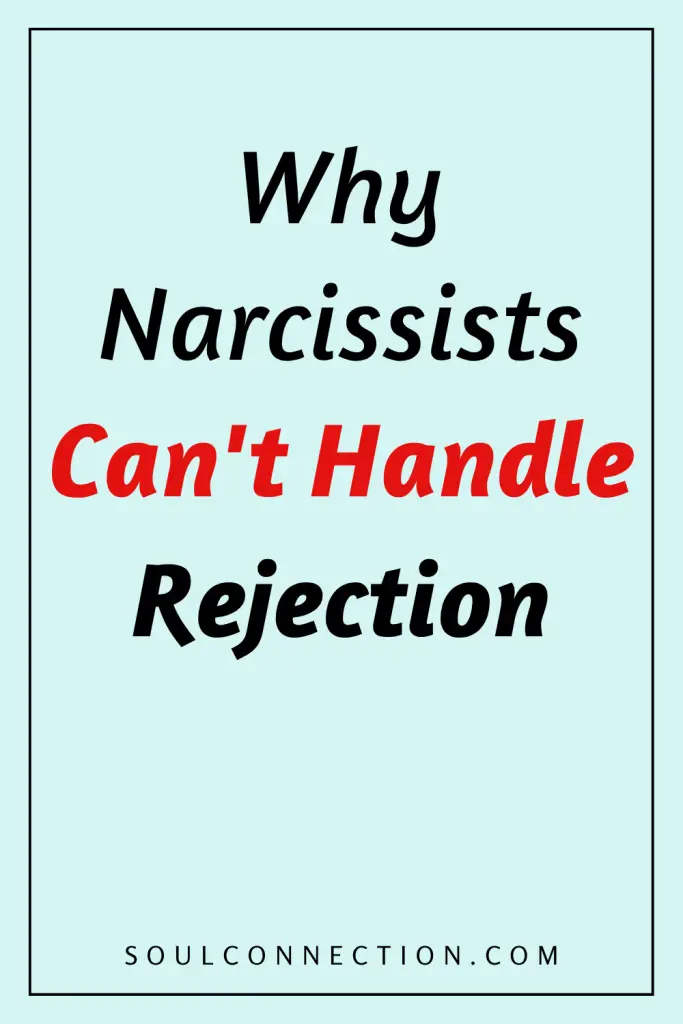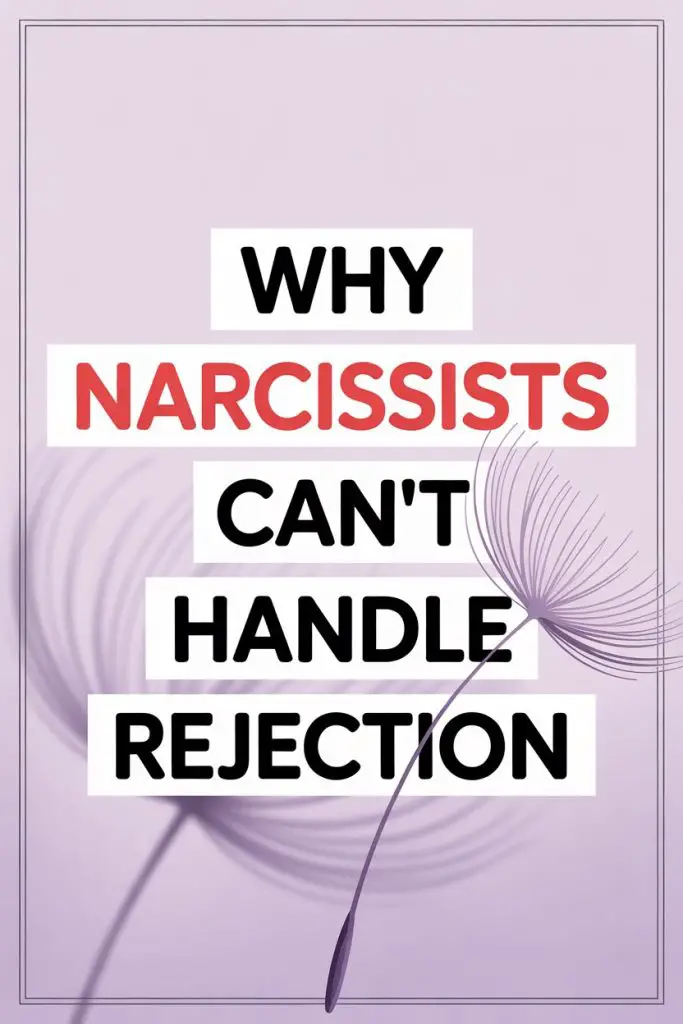Rejection is nobody’s idea of a good time. For most, it stings, maybe bruises the ego, and then life moves on. But for narcissists, rejection isn’t just a bump in the road—it’s a full-blown existential crisis.
If you’ve ever watched a narcissist respond to the word “no,” you know you’re in for a show (popcorn not included).
Ever wondered why these folks unravel so spectacularly at even the hint of disapproval? Time to unpack the drama.
What Makes Narcissists Tick
Narcissists are fuelled by a constant need for admiration and validation. On the outside, they may appear as confident as a peacock in mating season.
Underneath that bravado, though, is a fragile sense of self-worth glued together with praise from others.
Their self-esteem depends almost entirely on external sources. If the applause stops, the narcissistic confidence wobbles—sometimes catastrophically.
When you reject a narcissist, you’re not just saying “no.” In their minds, you’re threatening their very identity. No wonder things get messy.
Rejection Is a Blow to the Ego
For most people, rejection is a temporary setback. For narcissists, it’s like poking a balloon with a fork—cue the deflation.
This isn’t just an inconvenience; it’s a direct attack on their self-perception. They’ve spent years curating a highlight reel for the world.
Suddenly, someone dares to suggest they’re not all that? Outrageous.
Many narcissists have never properly developed the skills to tolerate disappointment or criticism. Emotional resilience isn’t exactly their strong suit.
That’s why a single “No, thank you” can feel like the universe is conspiring against them.
The Fantasy of Perfection
Narcissists often believe they’re extra-special. Unique. Destined for greatness. This fantasy is not just comforting, it’s essential for their psychological survival.
Rejection shreds this fantasy. It’s not just about being turned down for a date or ignored in a meeting. It’s evidence that their glittering self-image might have a few cracks.
For them, this possibility is intolerable (and, ironically, sort of hilarious for anyone watching from the outside).
Rejection Is Rewound Old Wounds
Many narcissists grew up in environments where love was conditional—dependent on achievements, looks, or charm. Deep down, there’s a terrified child desperate for approval.
Rejection reawakens those old fears of abandonment and unworthiness, sending them into emotional overdrive.
Suddenly, you’re not just the person who said “no.” You’ve become every parent, teacher, or ex who ever made them feel small. No wonder they can’t just “let it go.”
The Need to Be in Control
Control is the bread and butter of the narcissist’s world. As long as they’re calling the shots, all is well. Rejection flips the script. Now they’re not in charge, and the power dynamic shifts.
Cue the tantrum.
They can’t dictate your feelings or actions, and that infuriates them. Expect everything from guilt trips to grandiose threats. Anything to claw back some semblance of control.
Spotlight on Shame
Shame lurks beneath the swagger. Narcissists work overtime to avoid feeling humiliated, because deep down, they believe if people saw their true selves, no one would stick around.
Rejection exposes this fear for all to see. Instead of handling it like a grown-up, many narcissists double down: attacking, blaming, or rewriting history to protect their fragile self-esteem.
“You were never good enough for me anyway!” Sound familiar?
The Blame Game
Self-reflection is not a narcissist’s preferred pastime. When faced with rejection, most would rather blame the messenger than examine their own behavior.
Prepare for mental gymnastics. Suddenly, you’re not just someone with preferences—you’re mean, jealous, or “crazy.” This isn’t about you.
It’s about their inability to process failure without a scapegoat.
The Cycle of Idealization and Devaluation
Narcissists are famous for putting people on pedestals—until those people disappoint them. The moment you reject them, the script flips.
That dazzling affection? Gone. Welcome to devaluation, where you transform overnight from “the one” to “just another nobody.”
This emotional whiplash isn’t personal. It’s just how narcissists protect themselves from the reality that they’re not as all-powerful as they’d like to think.
The Myth of Invincibility
Narcissists cultivate an aura of invulnerability. They’re the ones who walk into a room and expect everyone to notice. When they’re rejected, this myth shatters.
A chink in the armor is unacceptable. Instead of accepting rejection as a part of life, they dig in their heels, sometimes lashing out or pursuing you with relentless charm.
Admit defeat? Not part of the fantasy.
Rejection and Rage
Ever witnessed a narcissistic meltdown? It’s not pretty. The fury that follows rejection can be volcanic—think slamming doors, cutting words, or endless texts.
Why the overreaction? Rage is a way to cover up those unbearable feelings of shame and inadequacy. It’s a defense mechanism on overdrive, designed to frighten, punish, or guilt you into changing your mind.
Why Closure Is Rare
When you reject a narcissist, don’t expect a mature conversation or neat ending. More often, you’ll get the silent treatment, a campaign against your character, or a dramatic attempt at a comeback.
Narcissists struggle with resolution because it means accepting a reality they don’t like. If you’re hoping for peaceful closure, you might be waiting until the cows come home.
How to Protect Your Peace Tonight
Dealing with a narcissist’s rejection meltdown can feel like treading water with sharks. The good news: you can keep your sanity intact.
Set clear boundaries and stick to them. Don’t get sucked into arguments or try to explain yourself endlessly. Narcissists are experts at twisting words and shifting blame.
Remind yourself: their reaction isn’t about you. It’s about their unresolved issues and fragile self-esteem. If possible, limit contact, especially if the drama is starting to affect your own wellbeing.
Document interactions if things get nasty. Sometimes, narcissists try to rewrite history. A paper trail never hurts—just ask any seasoned therapist.
Seek support from friends, family, or a mental health professional. Rejection is hard enough without someone else’s baggage weighing you down.
Moving Forward with Confidence
Rejection is a universal experience, but narcissists treat it like a catastrophic event. Their dramatic reactions spring from old wounds, shaky self-esteem, and a desperate need to stay in control.
If you’re on the receiving end of a narcissist’s meltdown, remember: your “no” is valid. Protect your peace, set boundaries, and hold your ground.
The storm will pass, even if the narcissist’s self-pity takes its sweet time.
You’re not their therapist, nor their emotional safety net. You’re simply someone who deserves respect, honesty, and—above all—the right to say no without fireworks.
Cup of tea and a good night’s sleep highly recommended.


